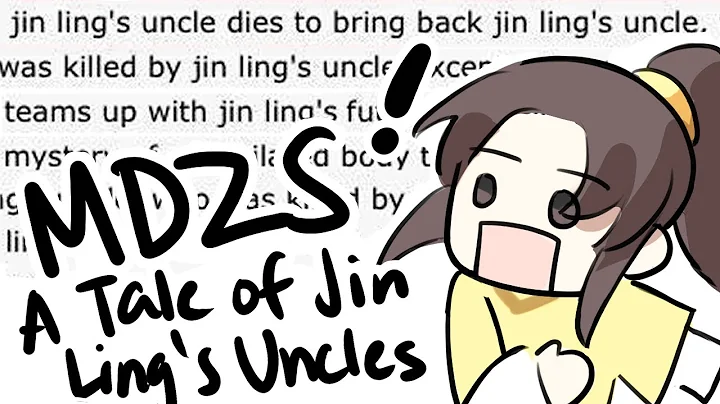This article is the exclusive original of Zodiac Story, please do not reprint without permission, the picture comes from the Internet, if infringement, please contact to delete, thank you!
Su Shi is a well-known ancient poet. Today I will introduce to you one of his poems-"Jiang Chengzi". The title of this poem is "Yi Mao, the 20th day and night of the first month of the month dream". "Remembering Dreams" is actually a eulogy written by Su Shi on the 20th day of the first month of the eighth year of Xining in memory of his dead wife.

At that time the author was forty years old, and Su Shi’s ex-wife, Wang Fu, was a green god in Meizhou. The two married when the author was nineteen and Wang Fu was sixteen. Life after marriage is friendly and happy, and the relationship between the two is deep and harmonious. Unfortunately, Wang Fu died suddenly of illness at the age of 27. This was indeed a heavy blow to Su Shi.
In the history of our country, it is common to write mourning in words or prose. To write in new long and short sentences, Su Shi was the first. He wrote a wide range of words. Nostalgia for the old, chanting of history and present, sorrow and parting, giving friends to express feelings, talking about Zen, remembering things, and even mourning deaths and deaths. They can be expressed in strict accordance with the rules of the word, and the achievements are very outstanding. This poem "Jiang Chengzi" is a famous piece of mourning works in ancient and modern times. The full text of the word
is:
Ten years of life and death are both infinite, unthinkable, unforgettable. Thousands of miles of lonely grave, there is nowhere to say desolate. Even if they meet, they should not know it, dusty face, temples like frost. You Meng suddenly returned home in the night. Xiaoxuan window is dressing up. There is nothing but tears. Expected to be broken every year, bright moon night, short Matsuoka.

The writing of mourning works in ancient poems is generally through the review of past life scenarios to express the author’s pain and nostalgia. This is not the case in Su Shi's poem. He completely uses imagination and dreams to express his mourning and sorrow, which is very different from others.
The first film starts with "Ten years of life and death, incomprehensible, without thinking, unforgettable." The beginning of the article sees the meaning, writing the time of life and death and the unforgettable nostalgia for the deceased." It was originally described as a state of vagueness. Here the meaning is here. It is more extensive. The so-called "blindness", for the living, the young couples who are deeply affectionate suddenly lose one party, and their hearts are very painful. It is simply lost everything "at a loss." This is one aspect; another aspect. Because the author is politically excluded and persecuted, the sea is ups and downs, and his future is uncertain, he will naturally feel confused about life and the future. In addition, the life is hard, he is busy, north and south, and the time is wasted. There is a feeling of emptiness and loneliness. As for the deceased, it doesn’t matter whether it is vague or not, but it actually comes from the poet’s imagination of the deceased. The meaning of this “vastness” probably means: Don’t lose your voice and content, thousands of miles apart, to your husband If you don’t know the life situation, you will definitely feel miserable and at a loss. Writing in this way gives people all kinds of room for imagination at the beginning, and makes a good pavement for the plot below. The next is "Don’t think, self-unforgettable . "The six words are broken into two sentences, which seems to be cut and powerful; the opposite is true, and the feeling is even more profound.

Then the author rewrites the specific situation of missing: "Thousands of miles in a lonely grave, there is nowhere to say desolate. "These two sentences are extensions and depths of the first three sentences, respectively explaining their respective situations. The first sentence writes about his wife, saying that she is buried thousands of miles away alone; the second sentence writes about himself, saying that he is from his wife After death, there is nowhere to talk about their sad feelings. On the surface, using such narratives to explain their situation seems to be too calm, but the word "word" plus "nowhere" means that the husband and wife urged their knees ten years ago. Talking about the details of life, this makes people feel that their respective sadness is very deep.
Then the author further imagined: "Even if you don't know each other, your face is dusty and your temples are like frost. "When a person is extremely longing, he will often weave many hypotheses in his thoughts. This is a natural psychological and spiritual state. But the poet did not go on to say it, but pushed a layer away, saying that he is now full of dust and dust. People with two temples like frost, even if the husband and wife can meet, I am afraid that they will not recognize each other. Here again, there are waves for the following dream meeting. The author uses the six words "Dust covered face, temples like frost", on the one hand, he vividly portrays his vicissitudes, aging and haggard appearance, on the other hand, he also vividly expresses the infinite bitterness of the ups and downs and the frustration of official career in the past ten years. If you want to write these things up front, you don’t know how much pen and ink it will take, and it’s not easy to explain them all. However, here is just a fictitious stroke, from the point of "even if we meet and should not know", we can skillfully control my feelings over the past ten years. , Appearance, situation and so on. Since it is such a scene in front of you, how can people not think more deeply about their dead relatives? This naturally leads to the real dream, which leads to the transition to the next film.

Write down the dream and mood. "Ye Lai You Meng returns home suddenly. Xiaoxuan window, dressing," is a description of dreams, which immediately cuts to the topic. "Ye Lai You Meng" refers to a vaguely dreamed night on the 20th of the first lunar month; "Suddenly returning home" means that he suddenly returned to his hometown in Meizhou. The word "suddenly" indicates that the night dream is very sudden. In fact, the missing feeling described by the poet in the previous film is the direct reason for the dream to return to his hometown, and it is not sudden. "Xiaoxuan window, dressing up," is the reproduction of his wife's life in the poet's dream. She was still leaning against the small bright window as usual, dressing up and waiting for her husband to return. Only six words are used here to portray the wife's graceful mood and affectionate so vividly and vividly.
The scene after the meeting in the dream is also very unexpected: "We are speechless, but there are thousands of tears." Looking at each other, they can't say a word, only the tears keep streaming down. The meeting after a long absence and reunion is written beautifully. The two of them were speechless because "the dust is all over their faces and the temples are like frost", and they suddenly didn't dare to recognize each other. After the couple recognized them, they were really sad and joyful. They seemed to have a thousand words to say, but they didn't know where to start, but there was not even a word. Although what is written here is a dream, but the reality is realistic. It makes people imagine how deep their love and respect for each other is!

Writing "Meeting with the Dead Wife in the Dream" is the theme and climax of the whole word, and it is also what the reader wants to know in detail. However, the author only uses two sentences to write the first time. The scene and the love after the meeting, there is not even a word of love to each other. This is a place of great art and mastery; if there are a thousand words, it is better to be silent. The details of his life seem to be ordinary, but its capacity is so large that people have plenty of room for imagination.
The last three sentences: "It is expected to be broken every year, bright moon night, short Matsuoka." This is the poet's eternal memory of his dead wife. At the end of the first film, the author once used "even if" to express an idea, and at the end of the second film, he used "Liaode" to further express an idea. "Liu De" means expectation; "Nian Nian broken part" refers to the place where the liver and intestines are broken and painful year after year. "Bright moon night, short Matsuoka." "Short Matsuoka" refers to the cemetery of the dead, under the moonlight On the hill with pine trees everywhere.
Su Shi's eulogy is a dual purpose. The first film directly expresses the feelings of death and parting, and at the same time reveals the misfortune of personal frustration; the second film reproduces the life scene of the couple's long-distance reunion in their youth through dreaming, showing sincere nostalgia for the dead wife.

This word is written with deep affection and sadness, which is completely different from the majestic and heroic style commonly expressed in other words of the author. Su Shi is good at expressing his thoughts and feelings in the midst of great openings, falling, and turning. Unlike most graceful poets, his pen is exquisite and the meaning of words is subtle; but this "Jiang Chengzi" is still subtle and delicate. . The language is popular, simple, and refined. Obviously, it is only after thousands of tempers. He combined the memory of the dead and the sigh of the living to make the theme of the work more profound and meaningful. Perhaps this is why people love this little poem.





















